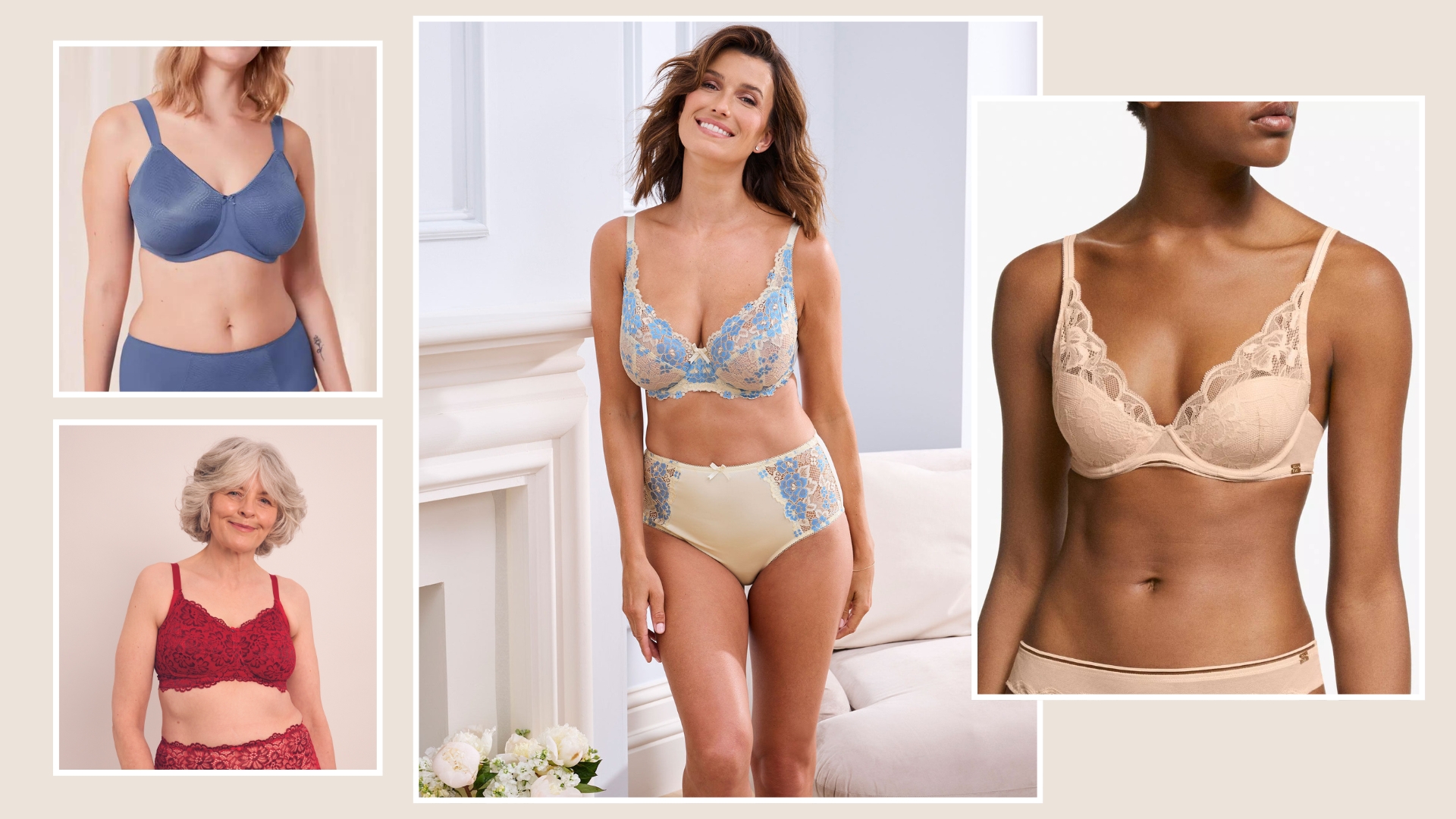
As we get older it becomes increasingly important to find a bra that is both comfortable and supportive. Wearing the right bra isn't just a matter of looks - choosing the wrong style and size can lead to discomfort and a host of health issues too.
Finding the best bras can feel like searching for the holy grail! As we age our bodies change and personally I'm no longer willing to endure pain and discomfort for the sake of good looks. That said, I still want to look great in my underwear and feel confident in my clothes. The search for the most comfortable bras will depend on your bra size, so it's important to get fitted regularly and know how to spot an ill-fitting bra, especially if you are looking for best bras for large busts.
Your lifestyle will dictate the types of bra that you need in your lingerie collection and the level of support required. Alongside bras for everyday you may require styles for special occasions that will provide solutions to tricky necklines and it's important to have a great sports bra too, if you plan to continue exercising. If you have particular mobility issues it's essential to consider how easy the bra is to put on and off again. Finding the right bra will ensure you feel great, increase your confidence and help you to look fabulous in whatever you are wearing.
Does your bra size change as you get older?
There are many reasons why your bra size will change as you get older. Significant weight gain or loss will be the obvious factor and it's essential to invest in new bras if your dress size drops or rises. Menopause will also be a key factor. As our estrogen levels decrease the breast's connective tissue changes, becoming dehydrated and less elastic. This causes the tissue to shrink, giving the appearance of 'saggy' breasts. Suzanne Pentland, Bra Fitting Expert and Retail Support Manager at Wacoal explains. “As we age, our bodies can naturally change in shape and size. It is recommended that every six months we should have a professional bra fitting. This becomes more important as we get older as the skin elasticity in our breasts can stretch, causing our breasts to droop and lose their firmness. Making sure that our bra is the correct fit will ensure the breasts are supported and uplifted.”
Why do bras get more uncomfortable as you get older?
According to research carried out by lingerie retailer Boux Avenue over 80% of women are wearing the wrong size bra, and if you continue to wear the incorrect size as you get older the risks associated will increase accordingly. If your breasts are heavy wearing a non-supportive bra can affect your posture and over time lead to hunching. Suzanne explains "Larger breasts require greater support, and wearing a badly fitted bra can lead to back, neck & shoulder pain." As we age our skin will get more sensitive, becoming thinner and more fragile as we loose some of the protective fat layer. Wearing a poorly-fitting bra will increase this sensitivity and lead to chafing, inflammation, bruising, benign skin growths and itching. "A badly-fitted bra can cause pain in our breasts." says Suzanne. "Wires digging into our skin will definitely lead to discomfort."
How do I find my bra size?
The most sensible way to find your bra size is to be fitted by a professional bra fitter at a department store or lingerie specialist. Many companies offer virtual fittings too, via their websites. If you prefer to work out your own size follow our 3-step guide below.
Step 1 - Start by wearing a bra that you feel most comfortable in and measure in inches directly under your bust, keeping the tape tight and level around your body. If this number is odd you will have to add or subtract an inch to find your size.
Step 2 - Measure around the fullest part of your bust (usually the nipple line) keeping the tape level all the way around your back.
Step 3 - Subtract your band size (from step 1) from your bust size (from step 2) and use the difference to calculate your cup size. For example if you have zero difference in inches you will be a AA cup size, one inch = A cup, two inches = B cup, 3 inches a C cup, and so on.
But beware! Bra sizes are not standardised, each brand will fit differently and it's impossible to find the right fit based on size alone. You need to pay close attention to the look and feel of the bra. Here are the signs to look out for...
1. Your bra rides up at the back - This is a sign that the band size is too big. The band should fit firmly and provide 80% of the support.
2. Underwires digging in - The underwire should not rest on the actual breast tissue or cut in under the arms. Go up a cup size.
3. Bulging cups - The top of the breast should fit smoothly into the cups without overspill. If in doubt go up a cup size.
4. Gaping at the front - The centre front of the bra must lay flat against the breast bone without sitting on any breast tissue. This is a sign your cup size is too small.
5. Uncomfortable straps - You should be able to fit two fingers comfortably under the straps, if they dig in consider going up a cup size and down a band size.
Tip: When trying on a bra for the first time fasten on the loosest hook, over time your bra will stretch as you wash and wear it, this will allow you to fasten it tighter as this happens.
What bra styles are best suited to older women?
This totally depends on the size and shape of your breasts. If you measure a D+ cup and are looking for the ultimate support go for a full-cup bra that has side panels that will help to centre the bust and wider straps for a comfortable fit. Balcony bras are great for creating a more youthful appearance as they lift and separate the breasts while plunge styles will create more cleavage. "If mobility is an issue front fastening bras may be required." says Suzanne. "Some woman experience fluctuating loss of firmness and fullness in their breasts, so we recommend styles with stretch lace to accommodate this." You may be wondering if older women can wear underwired bras. Suzanne is firm in her opinion. "Yes" she says. "Underwired bras will always offer greater support & shape than non-wired." If you are looking for a bra that will look good under fitted clothes consider some of the best shapewear for a smooth line.
Are front-clasp bras better?
"Front-clasp bras do not offer the same level of support as back-fastening bras" says Suzanne. "There is also not a great variety of front clasp bras & a limited size range too. However if mobility is an issue a front fastening adaptive style may be required as they are easier to put on if you have shoulder pain or find it tricky to fasten a bra due to limited mobility in your fingers."
What is a menopause bra?
A quick Google search on bras suitable for wearing during the menopause will offer up a wide variety of styles that offer more comfort and less support than a regular bra. Unwired crop tops and bralettes made from natural fabrics such as cotton or bamboo will be a good option if you suffer from hot flushes as the natural fibres are breathable and quick drying. The best bra to wear while going through the menopause is a personal choice based on the most comfortable fit and size for your individual body shape.
Shop the best bras for mature women

One of the best bra brands for mature women who require support the Fantasie Illusion bra is crafted from 3 piece cups with side support for great uplift and forward projection. The top of the lace cups are edged with a stretch band that's suitable for all breast shapes. This bra comes in sizes 30-42 D-J cup. Available in black, white and a variety of seasonal colours including this pretty lilac shade.
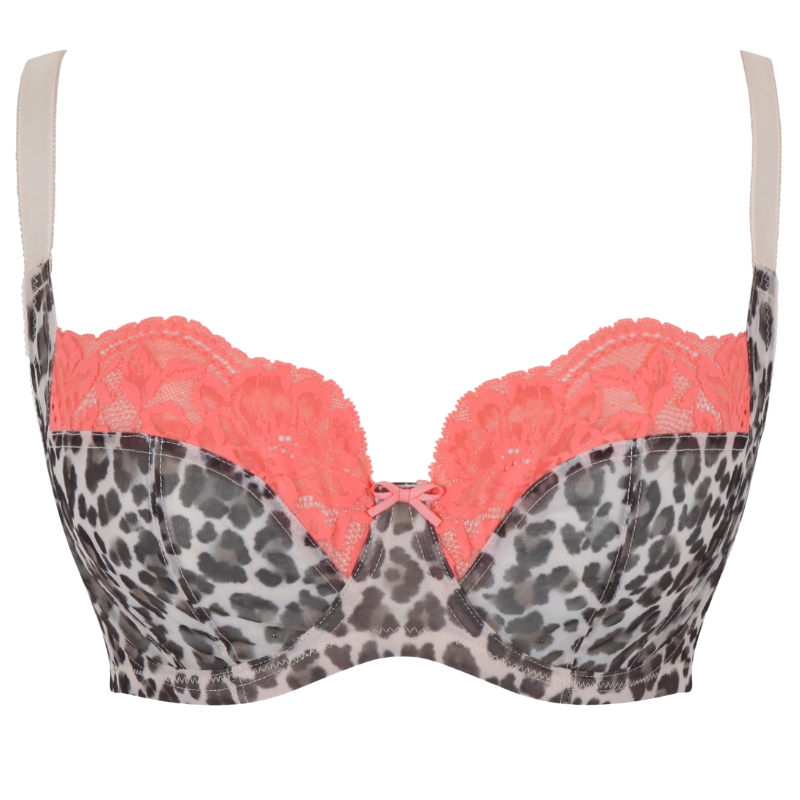
This is a 4 piece balcony bra with firm, unlined bottom cups that offer a bold sheer look in a fun animal print with vivid coral lace to contrast. Power mesh wings ensure a smooth line at the back, making this one of the best bras for back fat. Also available in black/leopard this bra come in sizes 28-38 D-K cup.

Available in sizes 32-42 C-F cup, we love this bra for it's comfort and fit. It uses weight distribution and light compression to visibly reduce your bust by one size, without feeling too tight or uncomfortable. A smooth bra that's great for wearing under t-shirts when you need a seam-free finish.
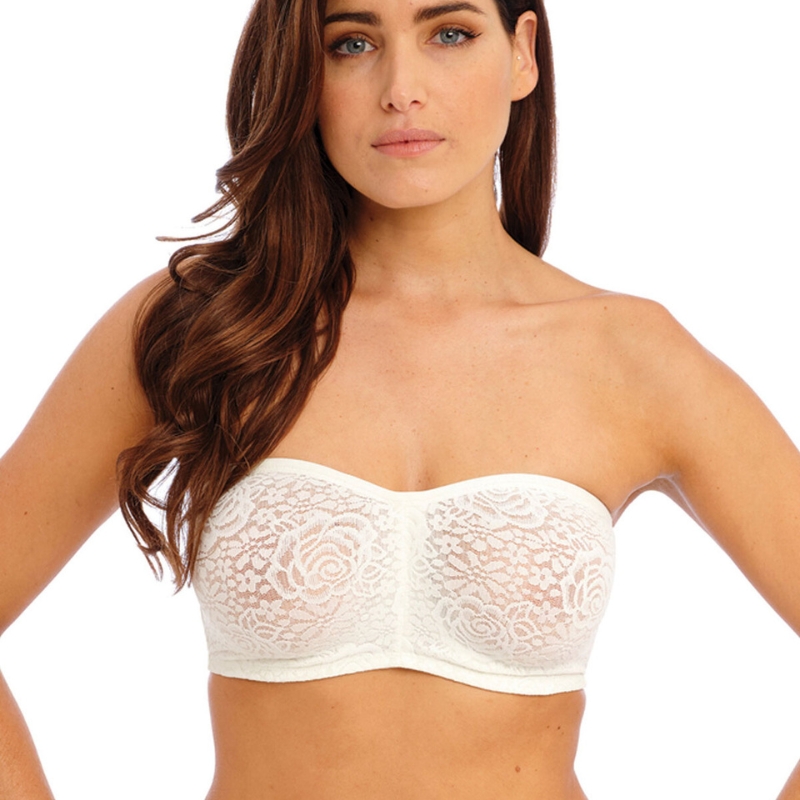
TV Presenter (and ex lingerie model) Lisa Snowdon says "I have to wear a bra with everything I wear, so I have many different types in my box of tricks. This bra is my go-to strapless bra, it’s fabulous, I have it in both nude and black, it’s comfortable and it doesn’t move. It’s underwired and unlike other strapless bras that give you one mono-boob this one creates separation, which is so flattering and elegant" Available in sizes 32-38 B-E cup.

This pack of two bras offers great value and customers are very positive in their reviews with one saying "Best bra I have found in ages, I'm naturally broad in back and these actually fit comfortably without extenders, stylish and reasonably priced" Aso available in a non-wired option, the straps are not as wide as other more expensive bras, which may be less supportive so better suited to women with smaller boobs. Available in 34-44 C-DD cup.
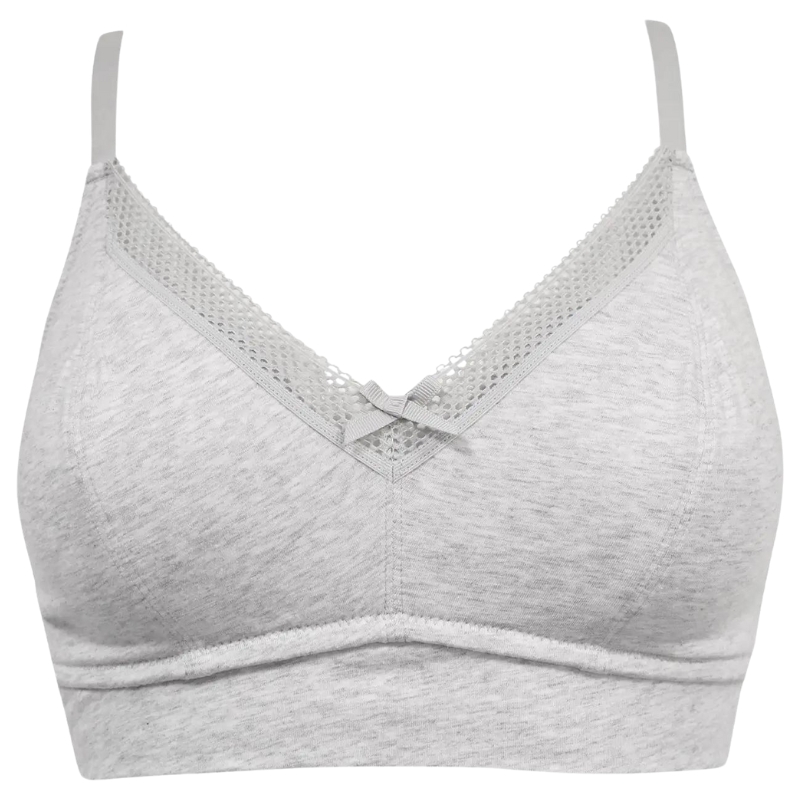
Made from 69% cotton this bralet is ideal if you are looking for a menopause-friendly bra that will feel comfortable during hot flushes. With lightweight foam cups and elasticated under band the bra offers minimal support, but ideal for smaller cup-sizes or for loungewear. This bra is comfortable enough to sleep in. Available in sizes 32-38 A-G cup. Alongside lingerie Pour Moi design some of the best swimwear for women over 50.

If you are looking for the best sports bra check out the various options in the Goodmove Collection at M&S, which are designed for varying levels of fitness and support. The Ultimate Support bra is a non-wired, racer-back style, ideal for high-intensity exercise. Made from breathable, quick-drying, moisture wicking fabric that includes their Cool Comfort® technology. Available in 32-42 A-H cup.
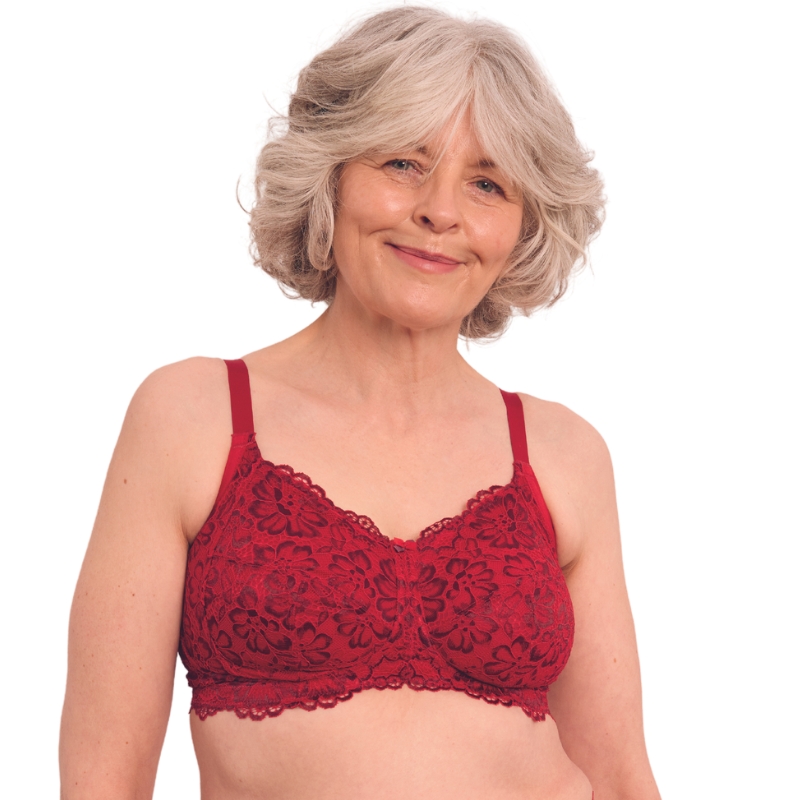
Customer reviews of this bra, by ladies who have had a mastectomy, include "I feel secure and supported", "Very stylish and comfortable, it boosted my moral after tough times" and "It's been a breath of fresh air to be able to wear a lacy bra again" This pocketed style is non-wired and has no internal side seams for extra comfort. Available in sizes 28-40 D-H cup.
Our experts:








